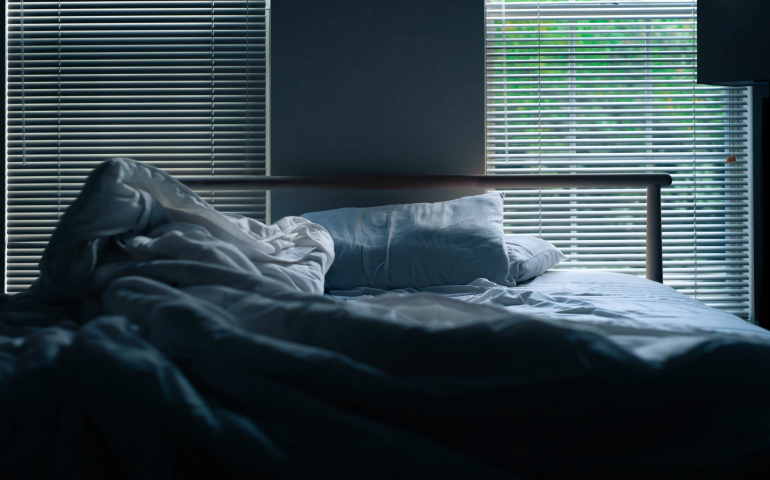As a college student, it is very difficult to get a good night’s sleep especially deep in the semester. We’re up late reading course materials, studying, writing papers, or preparing presentations. Some of us even have to juggle sports or a part-time job in addition to our education. Our time at SNU is a very vital point in our lives, achieving our academic and career aspirations. However, sometimes we’re too tired to put the utmost effort into our education. The importance of maintaining a good sleep schedule cannot be emphasized enough, as we need the utmost rest to function properly.
Sleep deprivation is a major problem for college students. Most of us get less than six hours of sleep (myself included) when eight hours is most commonly recommended.
SNU student Alyssa Koch describes suffering from insomnia, only getting 3-6 hours of sleep a night. She expresses that it’s a very difficult experience trying to maintain a proper sleep schedule.
Another SNU student Katelyn Stolz states, “I have the worst sleep cycle. Some days I have classes early and some days I have classes pretty late.” One of the biggest factors as to why she postpones sleeping earlier is so she can do things she enjoys after getting her homework done, wanting some downtime to unwind.
We all have heard that a good night’s sleep can benefit our health, but what are those benefits exactly? According to SCL Health, sleep can give your immune system a boost, granting the proteins and immunity needed to fight illnesses. Getting enough sleep can also improve your mood for the day ahead, staving off bouts of irritability and anger. Ever had trouble remembering information you spent all night memorizing for your test in the morning? Good sleep helps with that too! No surprise there.
Outside of seeking professional assistance available to help people suffering from sleeping problems, there are simple steps you can take to overcome obstacles in getting a more aIdequate slumber according to the CDC. One tip is to be consistent by going to bed at the same time each night and getting up at the same time each morning. Another tip is to keep the electronics out of your sleep space; try putting things like your cell phone on the other side of the room. It’s also recommended to stay away from caffeine and other stimulants for at least six hours before bedtime. And as much as we all rely on them for a small boost of energy, naps should be avoided during the day for a better chance to sleep during the night.
We at the ECHO hope this information helps those pursue a better sleep cycle and wish you sweet dreams!
Photo by Mitchell Griest on Unsplash
